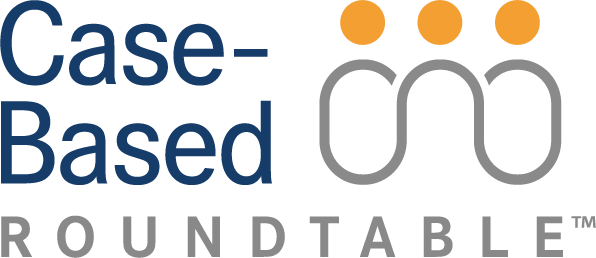
Isatuximab-Based Triplet Therapy Improves Outcomes in R/R Multiple Myeloma

In the first article of a 2-part series, Douglas Sborov, MD, discusses how the efficacy results of the IKEMA trial not only show isatuximab, carfilzomib, and dexamethasone as a viable treatment option for patients with multiple myeloma, but as further proof triplet therapy is superior to doublet therapy in this patient population.
CASE
A 60-year-old White woman was diagnosed with stage III multiple myeloma.
- Medical history: heavy smoker
- ECOG performance status: 0
- Three years ago, the patient developed acute onset of renal insufficiency and hypercalcemia.
Laboratory values:
- Estimated glomerular filtration rate (eGFR): 44 mL/min/1.73 m2
- Serum creatinine: 2.9 mg/dL
- Serum β2-microglobulin: 5.9 mg/L
- Lactate dehydrogenase: 283 U/L
- Cytogenetics: amplification 1q; translocation 14:16 – high risk
Treatment
- At the time, she was treated with VRd (bortezomib [Velcade], lenalidomide [Revlimid], and dexamethasone) induction therapy, followed by autologous stem cell transplantation.
- She achieved a complete remission with VRd and transplant and was negative for minimal residual disease (MRD).
- The patient was placed on lenalidomide maintenance therapy.
Two years on lenalidomide maintenance
- On follow-up, the patient reported having severe fatigue and pain in her back and legs that disrupted her ability to continue full-time work.
- M-protein: 1.98 g/dL (rapid increase from prior bloodwork)
- λ Free light chain: increased from 47.5 mg/dL to 136.7 mg/dL
- Hemoglobin: 9.8 g/dL
- White blood cell count and platelets: within normal limits
- Creatinine: 1.4 mg/dL (H; range: 0.59-1.04 mg/dL)
- eGFR:45 mL/min/1.73 m2
- Creatinine clearance: 40 mL/min
- PET scan shows new vertebral fracture at L1 and new lesions in both femurs.
- ECOG performance status: 1
The patient was then started on isatuximab (Sarclisa), carfilzomib (Kyprolis), and dexamethasone (Isa-Kd) and achieved a very good partial response (VGPR).
Targeted Oncology: How has the results from the phase 3 IKEMA trial (NCT03275285) impacted your considerations for treatment in this patient population?
DOUGLAS SBOROV, MD: I think [these data] are appealing, because I think it shows that Isa-Kd can be a good actor in [this patient] population. That’s something that’s been driving me in some of my decision making, but I don’t think this is conclusive concrete evidence. [However, when] you look at the lenalidomide refractory patient population you see an improvement with the addition of the CD38 monoclonal antibody, which is [representative of] the patient in this case.
What were the key efficacy data from this study?
Isa-Kd led to not only a slightly higher overall response rate [at 86.6% with the triplet vs 83.7% with the Kd doublet (odds ratio, 2.09; 95% CI, 1.26-2.48)], but deeper responses as well.1 Rates of MRD negativity for patients who also achieved a complete response [CR]…showed improvement at 26.3% with the triplet [compared with] 12.2% in the doublet (OR, 1.57; 95% CI, 1.35-4.88). Any time you look at a trial and you add a CD38 monoclonal antibody...you’re going to improve the rates of MRD negativity between 10% and 25%.
That’s not unexpected to see in these data, but when we look at the progression-free survival [PFS] in the final analysis of IKEMA for survival, the median PFS was 35.7 months [95% CI, 25.8-44.0] vs 19.2 months (95% CI, 15.8-25.0) with Kd, and the HR is 0.58 [95.4% CI, 0.42-0.79].2 So, clearly there is a difference with the triplet vs the doublet. We see that across the board, in every single trial, that more drugs are better than less drugs. But that 35.7-month median PFS is the best PFS that we’ve seen in this setting in any single trial.1
How did Isa-Kd impact patients’ time to another line of therapy and PFS2?
As we would expect, there’s improvement in the time to the next treatment and PFS2 with the triplet vs the doublet.1 When we look at the median PFS2 with Isa-Kd in less heavily pretreated patients [it’s 47.2 months (95% CI, 38.1-Not complete [NC])], compared with heavier pretreated patients [in other studies] at about 24 months, which is what we would expect. Patients who have this treatment in earlier lines of therapy do better.
There was also an improvement in overall survival for the triplet vs the doublet, but those data are not fully mature yet.1 So, looking at the long-term outcomes...when we look at [patients with a] 1q21 gain vs amplification of 1q21, the median PFS with Isa-Kd was 30.2 months [95% CI, 20.8-NC] vs 18.4 months [95% CI, 13.1-NC], respectively....2 So, we’re seeing a little bit of a hit in those patients with 3 copies of 1q21, but you see a significant hit in those patients with 4 or more copies.2
References
1. Martin T, Dimopoulos MA, Mikhael J, et al. Isatuximab, carfilzomib, and dexamethasone in patients with relapsed multiple myeloma: updated results from IKEMA, a randomized phase 3 study. Blood Cancer J. 2023;13(1):72. doi:10.1038/s41408-023-00797-8
2. Facon T, Moreau P, Spicka I, et al. Long-term outcomes with isatuximab-carfilzomib-dexamethasone (Isa-Kd) in relapsed multiple myeloma patients with 1q21+ status: Updated results from the phase 3 IKEMA study. J Clin Oncol. 2023;41(16):8029. doi:10.1200/JCO.2023.41.16_suppl.8029

















